Why Does Ar15 Have Feeding Issues With 762 X 39
Failures happen, no matter what type of platform you're shooting.
Handguns, bolt-actions, levers, revolvers – everything can fail. Yes, even revolvers.
But today we're talking about the AR platform.
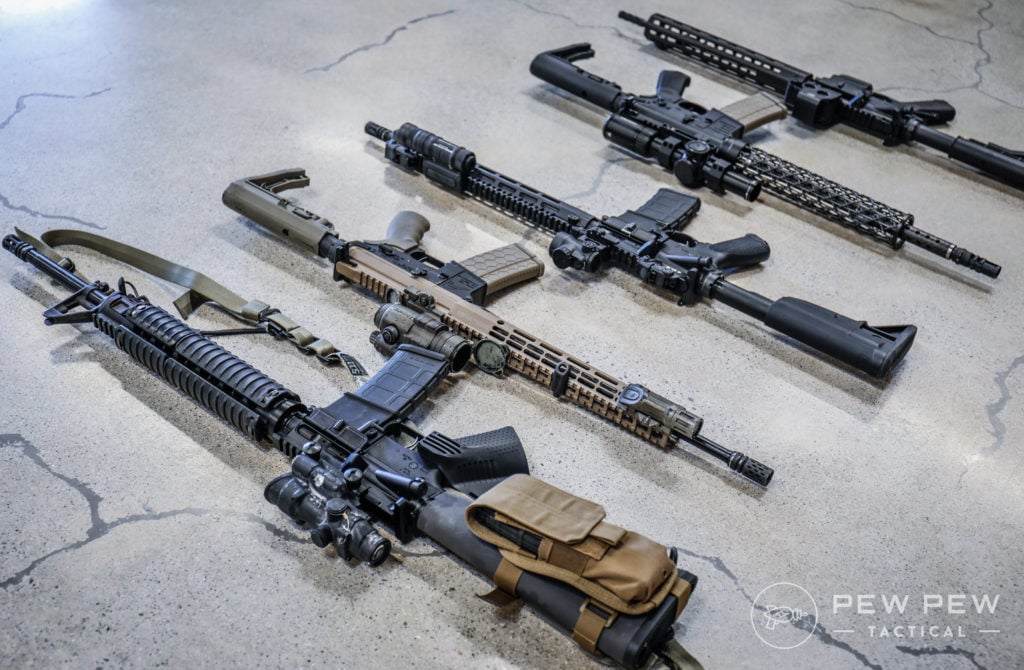
The ArmaLite Rifle is one of the most popular and innovative platforms in the world.
Unfortunately, while this design has many benefits and virtues, it's not immune to malfunctions. The good news is that most of these failures are easy to diagnose and correct.
Today, we're going to review common AR failures, as well as the simple tips, tricks, and adjustments that will get your gun cycling normally again.
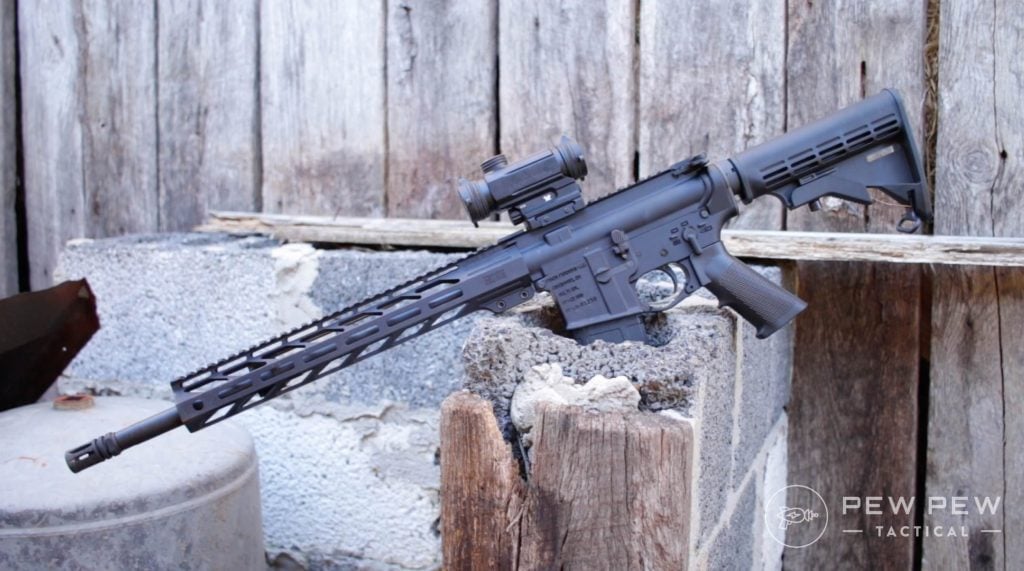
But before we get started, we want to mention that some of these can easily be prevented through knowing the basic functionalities of your AR-15.
Let's be real, some failures really are just user errors (ahem, not seating your mag properly).
So, brush up on the basics with the Brownells Daily Defense video below!
Let's get started!
Table of Contents
Loading...
Always Observe Safety Precautions
Before we dig into AR malfunctions, we need to go over a few critical safety tips.

If your AR doesn't fire as you expect it to, stop .
Blindly attempting to load another round or forcing the trigger to work can only lead to misfortune.
Instead, remove your finger from the trigger and make sure your gun is pointed in a safe direction.
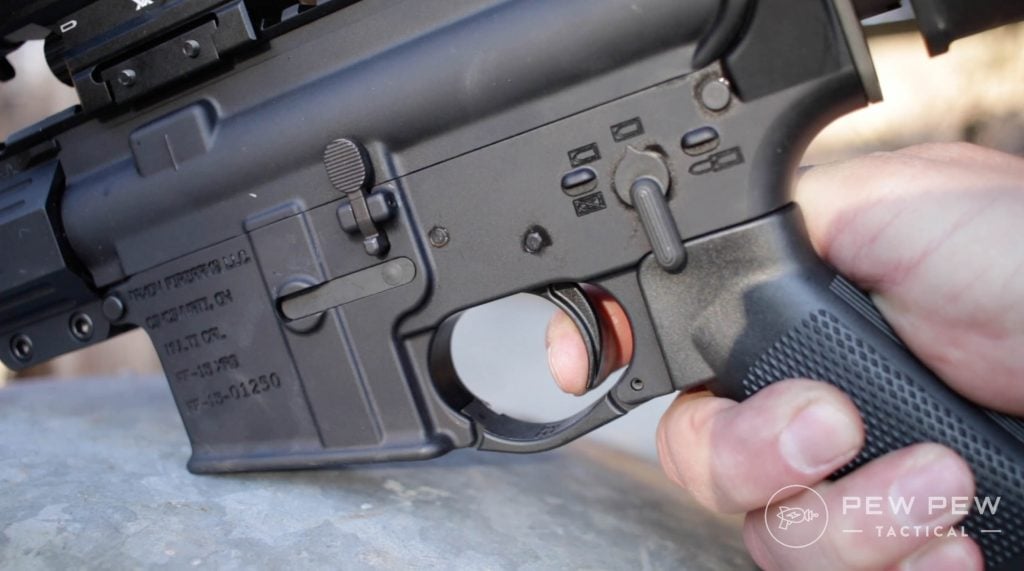
At this point, you can proceed to diagnose the problem.
This process naturally becomes more intuitive with time and experience. But even expert gunslingers know to take their time and prioritize safety over speed.

You'll eventually learn how to clear failures like a champ, but take it easy while it's a new skill.
Be careful, pay attention, and learn as you go.
8 Common AR-15 Failures
1. Failure to Feed (FTF)
Failure to feed (FTF) is one of the most common malfunctions you'll encounter as a gun owner.
It occurs when a round fails to load into the chamber of an AR from the magazine.
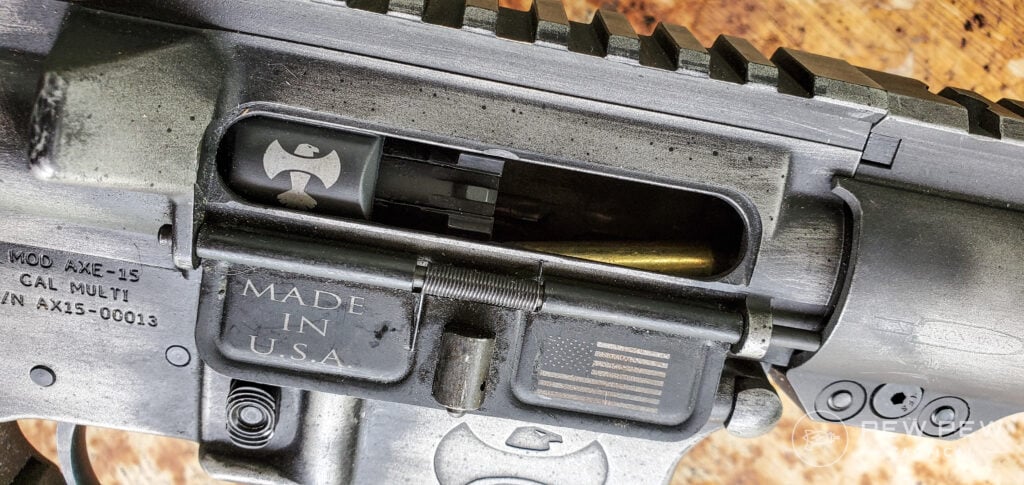
What's really annoying is that it can happen at any time. It could be your first shot of the day, or it could kill your vibe halfway through a magazine.
Regardless, magazines are the most common failure point, so check out your mag situation first.
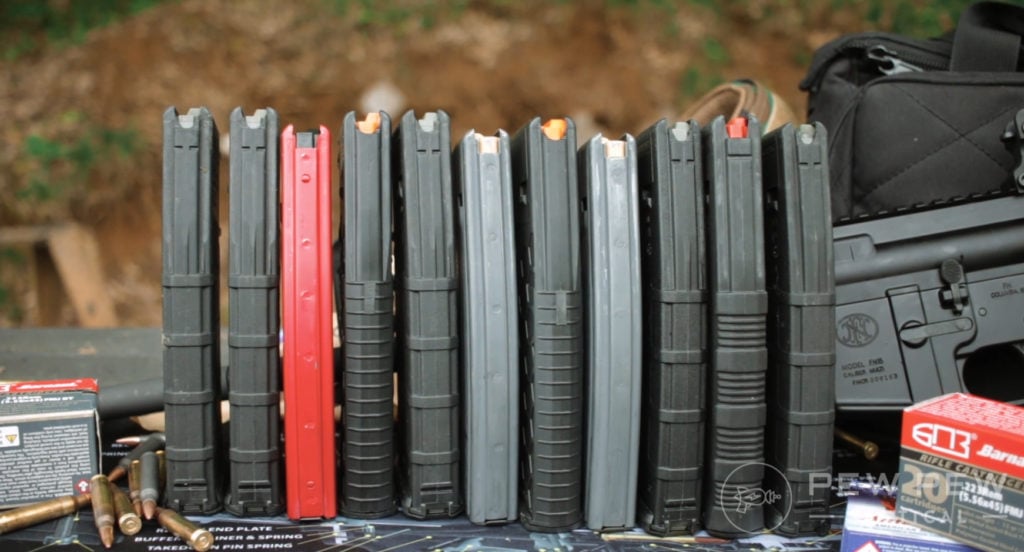
Remember this easy drill: tap, rack, reassess.
Tap the magazine to make sure it's fully seated, manipulate the charging handle or press the bolt release, and try, try again.
Sometimes you'll get lucky, and your rifle only needs a quick fix.
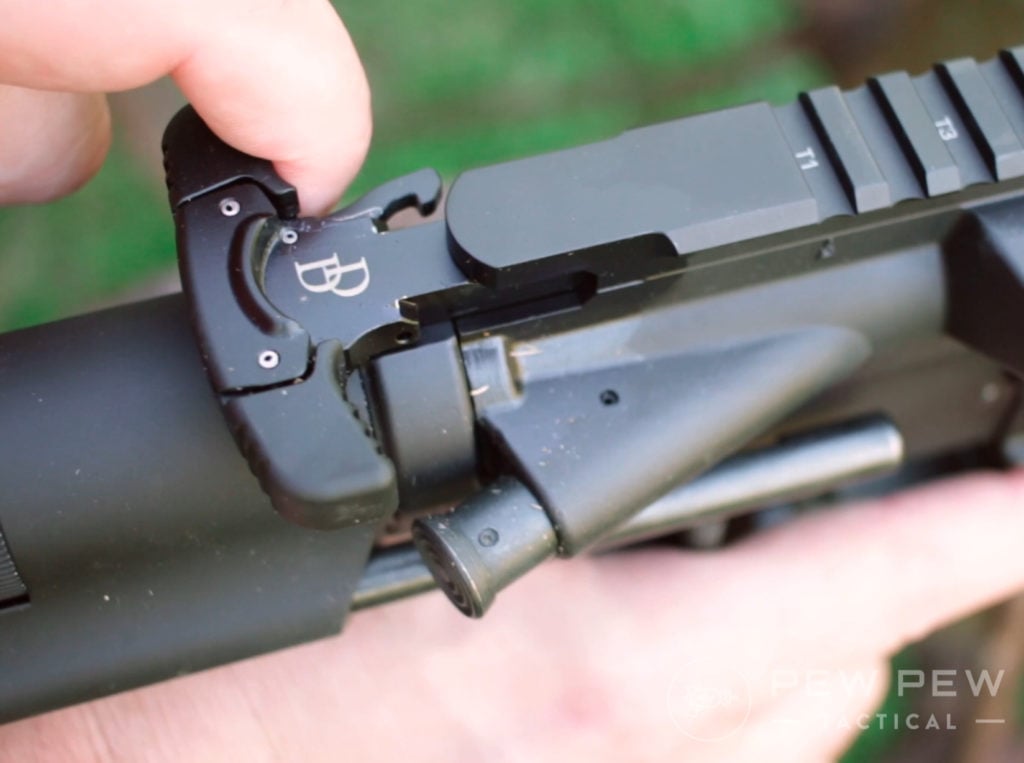
For example, FTF can occur if the magazine isn't seated properly, or maybe you're dealing with a case of operator error with the bolt.
It happens.
But if a quick maneuver doesn't get your AR up and running, it's time to conduct a more comprehensive diagnosis.
The first step is to switch out the magazine and check it over for any damage (hello, feed lips).

You should also count how many cartridges are loaded.
Sure, you have a 30-round mag, but maybe it can't handle 30 rounds anymore. After years of abuse, magazine springs can wear out and even fracture.
Or maybe it's another issue.
If the springs are tight or stiff, you might experience some feeding issues after loading those 30 cartridges, thanks to compression.
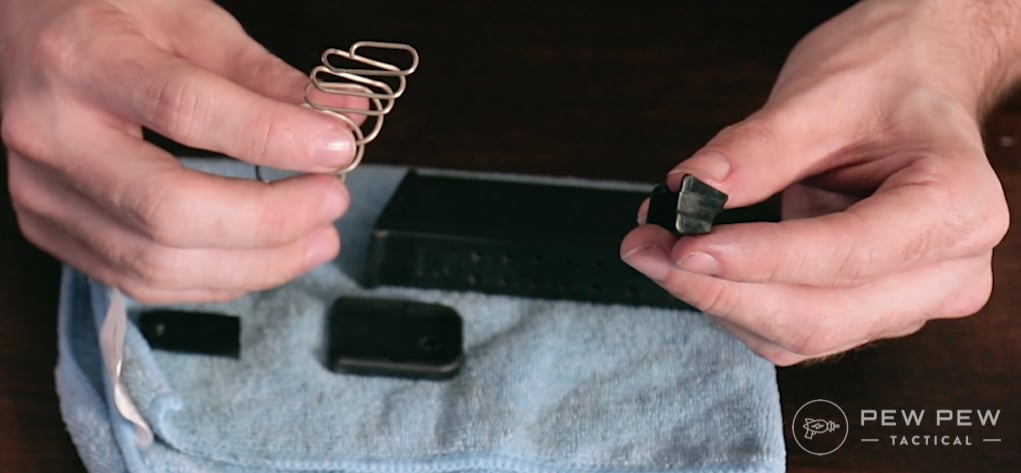
Hopefully, this next bit doesn't need to be said, but just in case…
DO NOT, under any circumstances, force additional rounds into your magazine, not even if you think there might be room.
Loading 32 cartridges into your 30-round magazine is just a recipe for disaster.
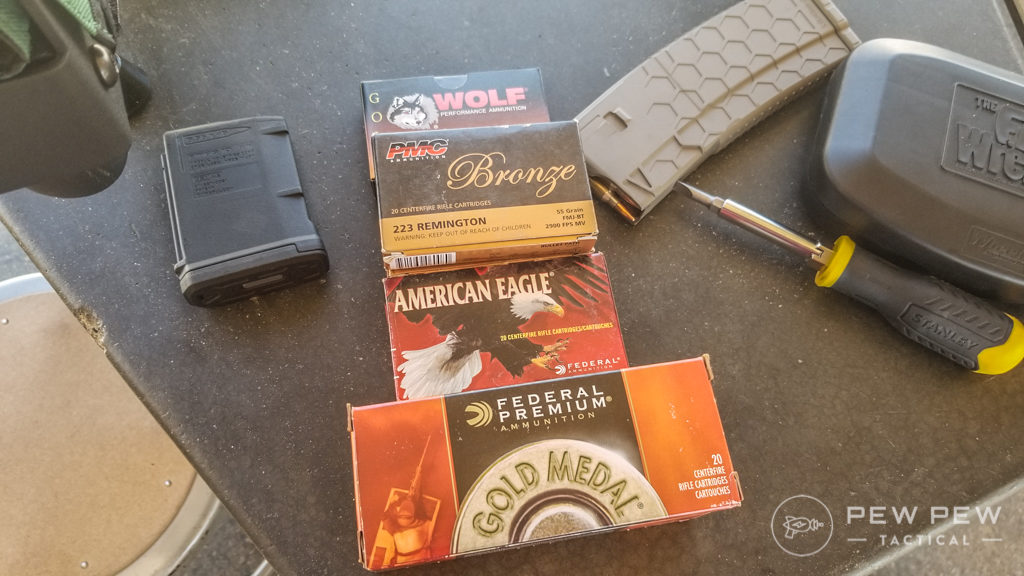
There needs to be some room in the magazine for movement.
Also, make sure your ammunition isn't crooked in the magazine, dented, or otherwise damaged.
Quality control depends on the manufacturer, but when automated assembly machines are responsible for spitting out thousands of cartridges a day, it's no surprise that a few bad apples find their way into ammo boxes.
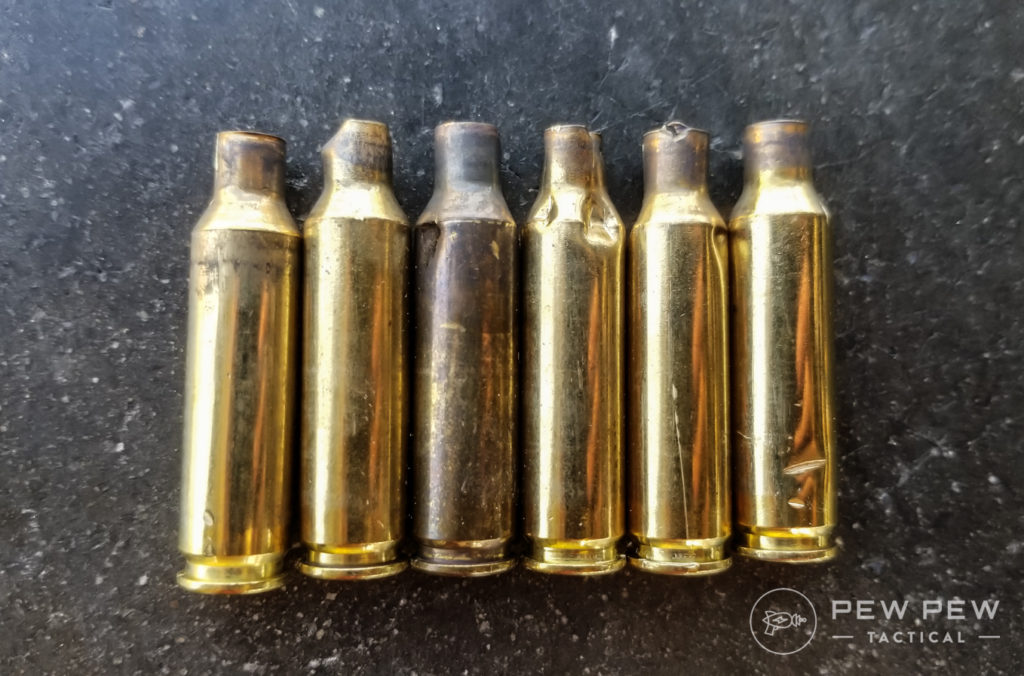
There could be missing or loose primers, improperly seated bullets, or other issues that could lead to problems – sometimes dangerous – when feeding or firing.
A word of advice: pay attention when loading ammunition into your magazine. It could save your gun, and possibly even your fingers.
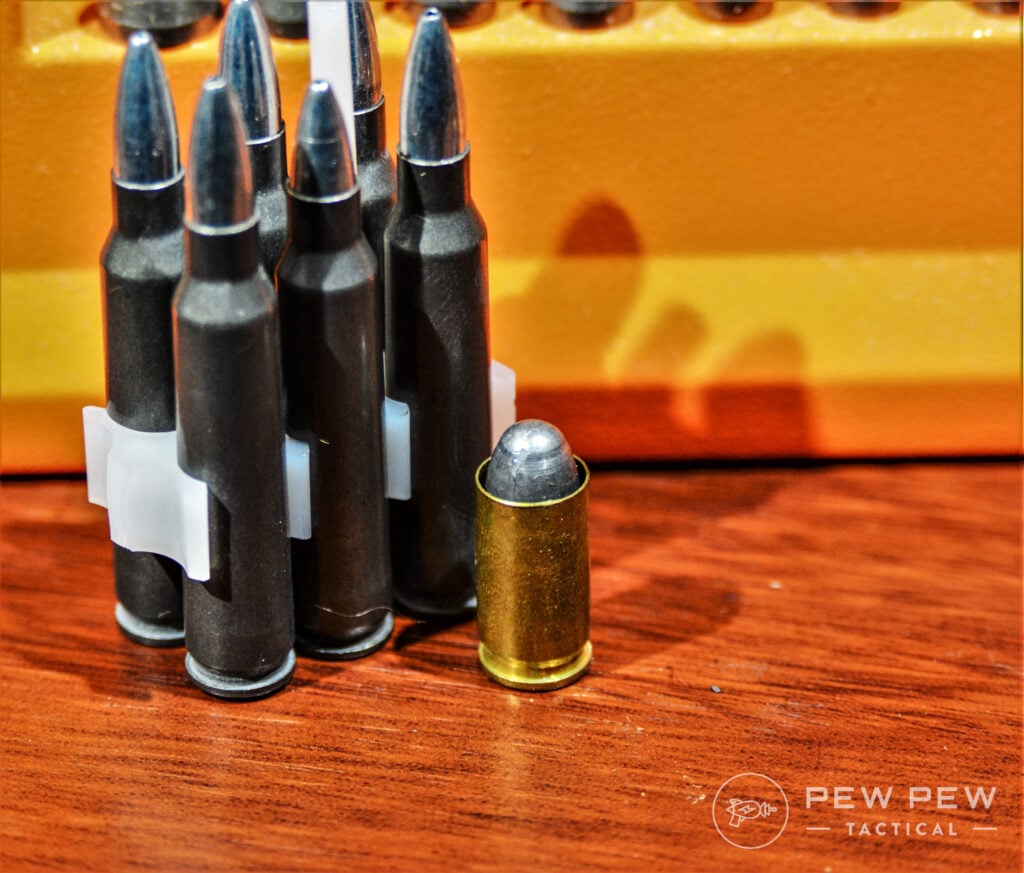
If you would like to learn more ammo safety tips, check out Ammo 101: The 4 Parts Of A Cartridge.
A Failure to Extract occurs when the empty cartridge of a just-fired round remains in the chamber.
Along the same vein, a Failure to Eject happens when the empty cartridge is extracted from the chamber but remains stuck in your rifle.
Either way, the next round will fail to feed.
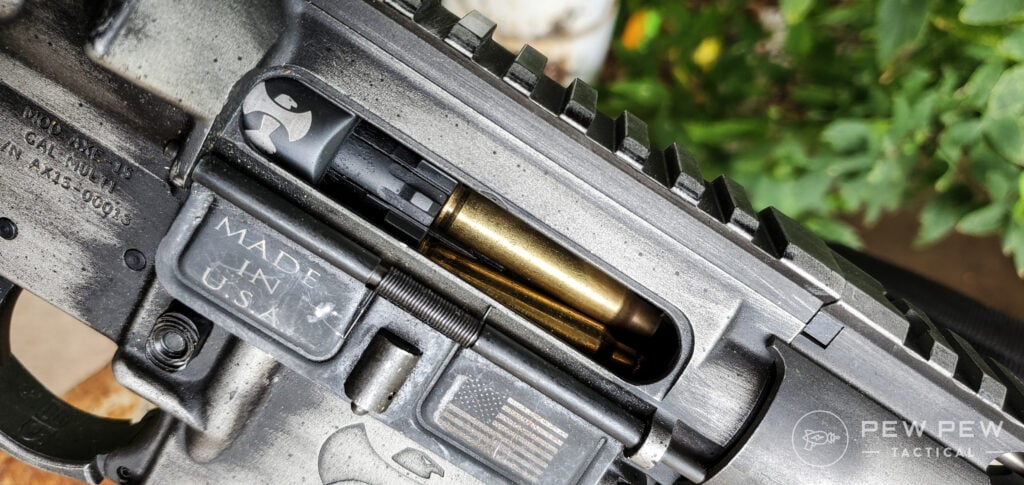
Usually, this issue can be resolved with a quick jiggle or tilt of the gun – always keeping those best safety practices in mind, of course.
But there are times when FTE is more difficult to fix.
In these situations, the bolt may have returned to its fully rearward position, or it might have short-stroked, meaning that it only traveled partway before stopping.
Luckily, you can fix this!

First, if the bolt did not lock itself back, do it manually. Once the bolt is held open, drop the magazine.
Then, try to see if pulling the charging handle and giving the AR a slight shake dislodges the wayward cartridge.
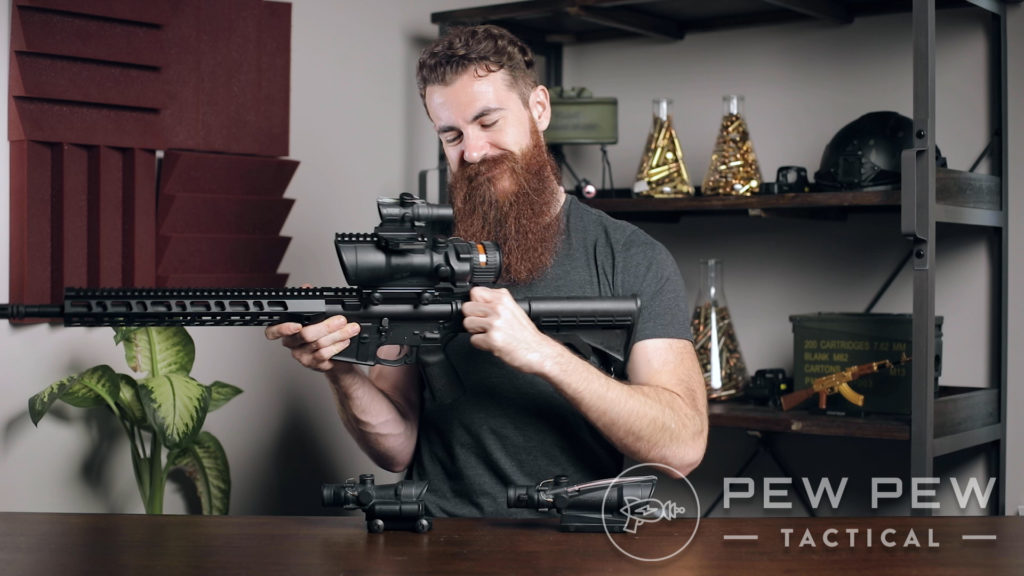
If it doesn't fall out, grip the charging handle with one hand, apply tension to hold it open, and tap the butt of the rifle against the ground or a shooting bench.
While following these steps, take care that the muzzle is aimed in a safe direction.
Hopefully, this dislodges the little sucker. If luck isn't on your side, use a cleaning rod to push the cartridge out.
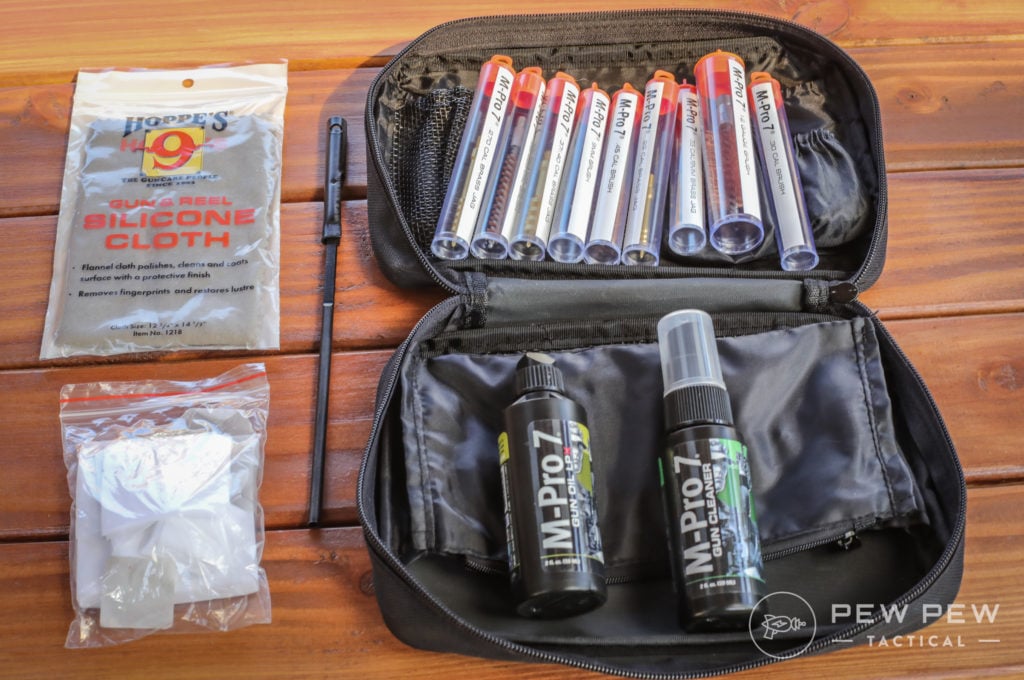
This is just one of many reasons to carry a cleaning rod in your range bag. You never know when you might need it!
Read up on which cleaning kits we recommend here!
The causes of FTE can range from a worn-out or broken extractor, short stroke, or even a dirty chamber.
Check your gun to make sure everything is working properly and maybe give it a thorough cleaning to get it cycling again.
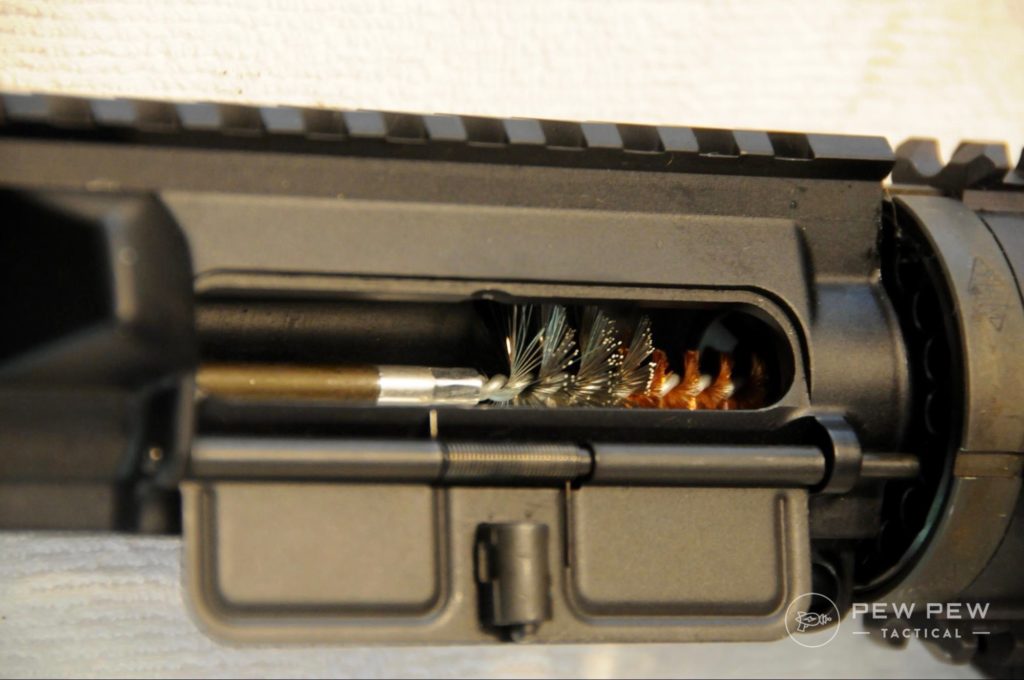
Want to make your AR happy? Take a look at our ultimate guide on AR-15 Cleaning and Maintenance.
You can also watch Johnny's video tutorial below on how to clean and lube your AR-15.
But what if your gun is sparkling clean and not suffering any breakage?
Sometimes, FTE is simply bad luck. It could be an improperly loaded round or even just a bad cartridge from the ammo manufacturer.

Luckily, this type of failure probably isn't going to ruin your day. Clear the cartridge and carry on.
If it keeps happening, start looking for a deeper meaning in the failure.
3. Failure to Fire
Failure to fire – or, put simply, "click no bang" – happens every so often.
It's often caused by ammunition mishaps, or perhaps the bolt didn't travel fully forward when you loaded the gun.
For bolt issues, you can refer to the same steps from Failure to Feed.

As for ammunition? Well, it's actually pretty simple. And when it comes to failures, we like simple.
Alright, first things first! Eject the round from your AR.
You should be able to see an indent in the primer from where the firing pin struck against it. A shallow or absent indent indicates that you had a light strike.
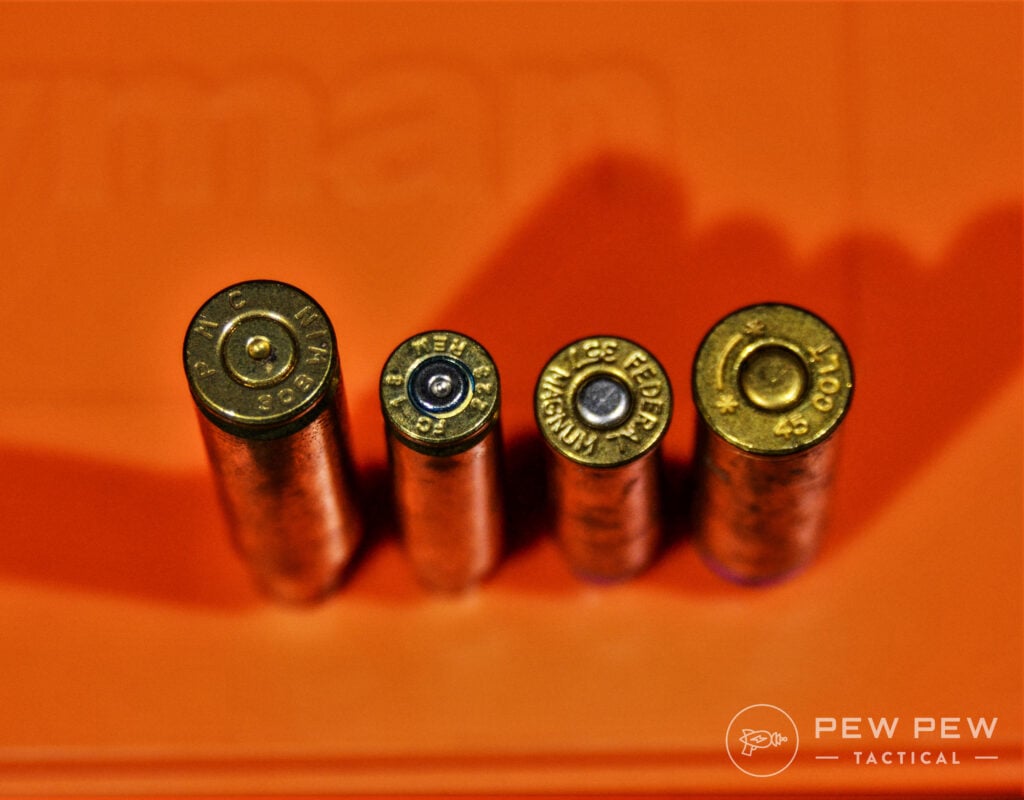
At this point, some doomsayers online might jump to the conclusion that something is catastrophically wrong with your AR. They might even suggest disassembling it for replacement parts.
Slow your roll, friend.

In my experience, this is usually an ammo-related problem. If it happens one time and can't be replicated with other ammunition, take a breath and move on.
However, if it proves to be a repeat issue, my suggestion is to try a different ammo brand. Not naming any names, but certain companies are notorious for failures.
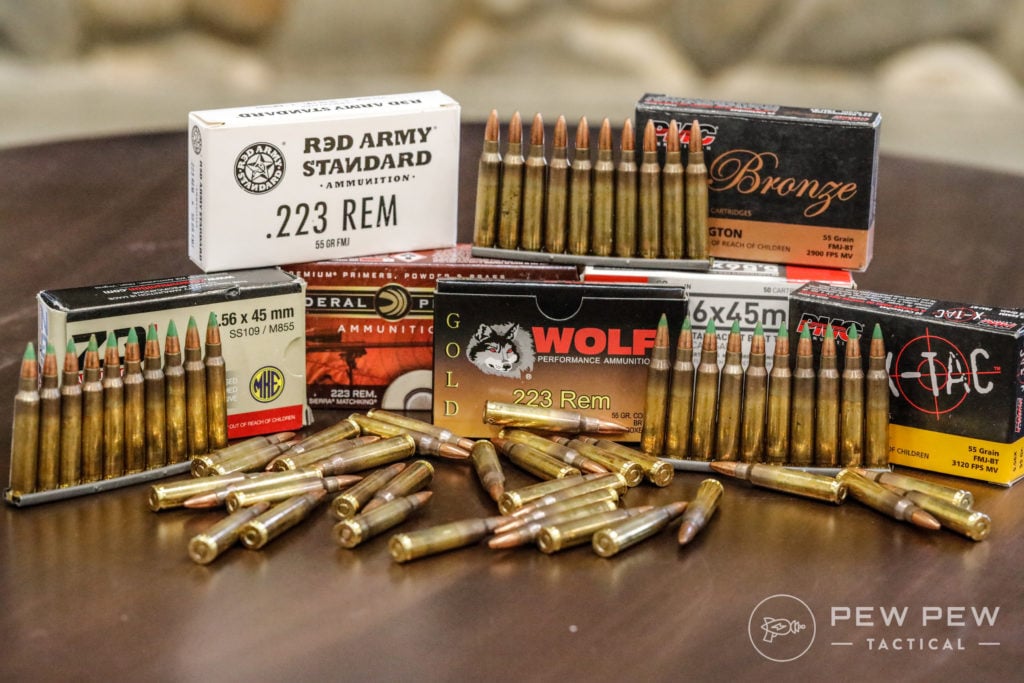
If the malfunction persists, then you might be dealing with a bigger problem.
That's right. It's time to Sherlock Holmes your rifle!
The most obvious place to start your investigation is the firing pin. Assess this part for any deformities or damage that could result in a malfunction.
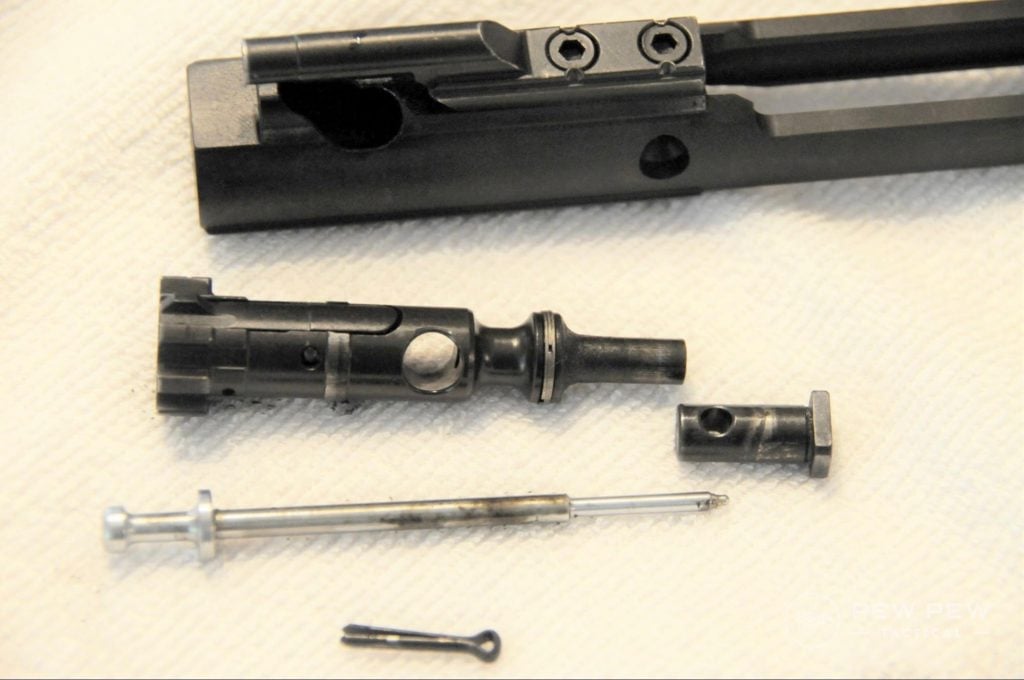
How often do you use your AR? Frequent shooting can lead to a buildup of gunk that might impair the firing pin's functionality.
I highly recommend cleaning and lubing your gun before pursuing repairs or replacing any parts.

4. Under-Gassed Rifle
Alright, so you've run through the usual list of fixes, but the bolt on the AR isn't reliably locking open, or maybe the brass is dribbling out in an unimpressive way.
Your gun is clean and lubed, you've tried different brands of ammo, and you even replaced the buffer tube and spring.

Check the gas rings right there at the shooting bench!
Pop open the upper and remove the BCG.
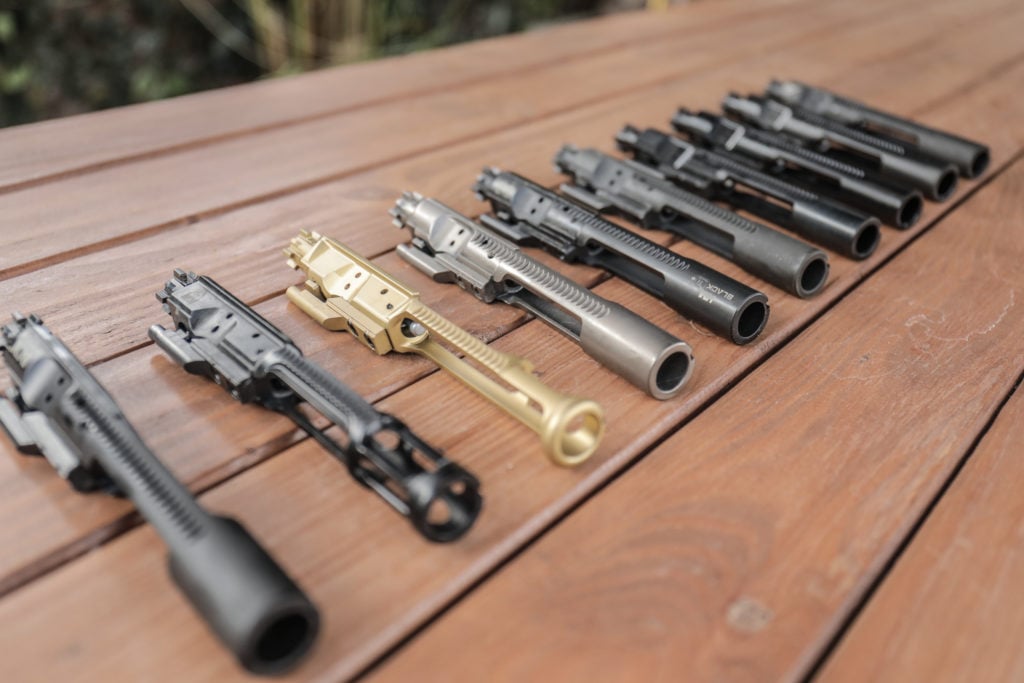
Grasp the bolt head, move it fully forward, and then turn it over on the bench so that the BCG is balancing on its head.
If the bolt stays in place without budging, great. But if the bolt head starts sliding down, you should try replacing the gas rings. That's the most basic, inexpensive fix.
But what if you've already replaced the gas rings and your AR passes the somewhat unscientific balancing-on-its-bolt-head test?

Well, now we move on to the gas system.
Make sure your gas tube and gas block are undamaged and the proper size and fit for the gun. They shouldn't be too loose or fouled to the point of malfunction.
If you built the AR yourself, double-check that you used the correct sizes for the barrel length and parts.
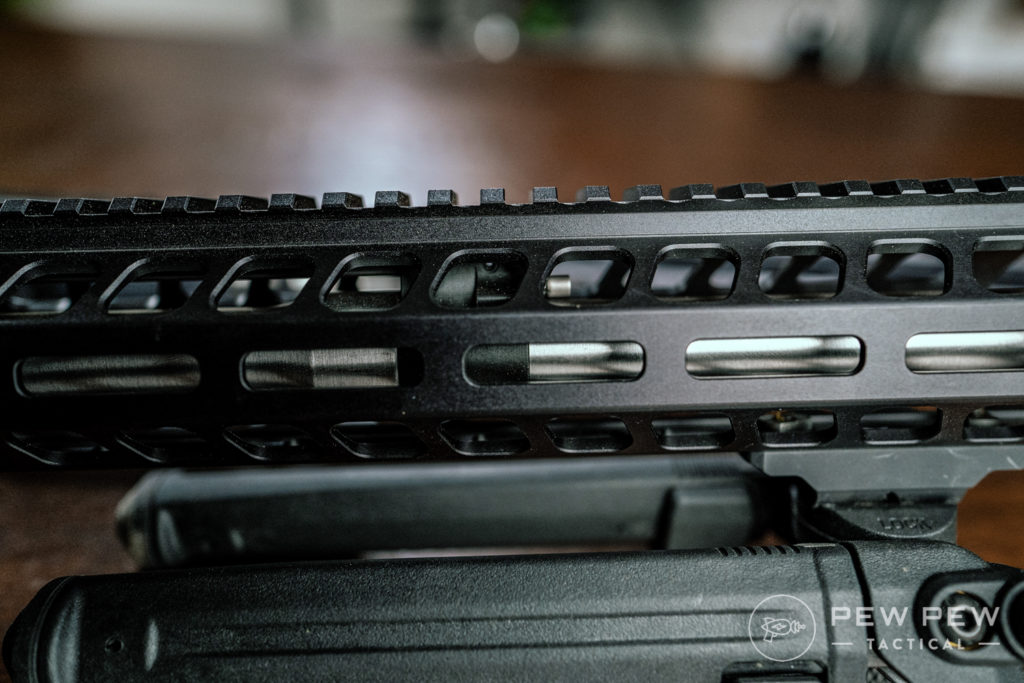
And kudos if you added an adjustable gas block to your build. The solution may be as simple as adjusting it to allow more gas into the gun.
FYI, adjustable gas blocks are fantastic. 10/10, highly recommend.
To learn more about this awesome upgrade, mosey on over to Best Adjustable Gas Blocks [Complete Guide].
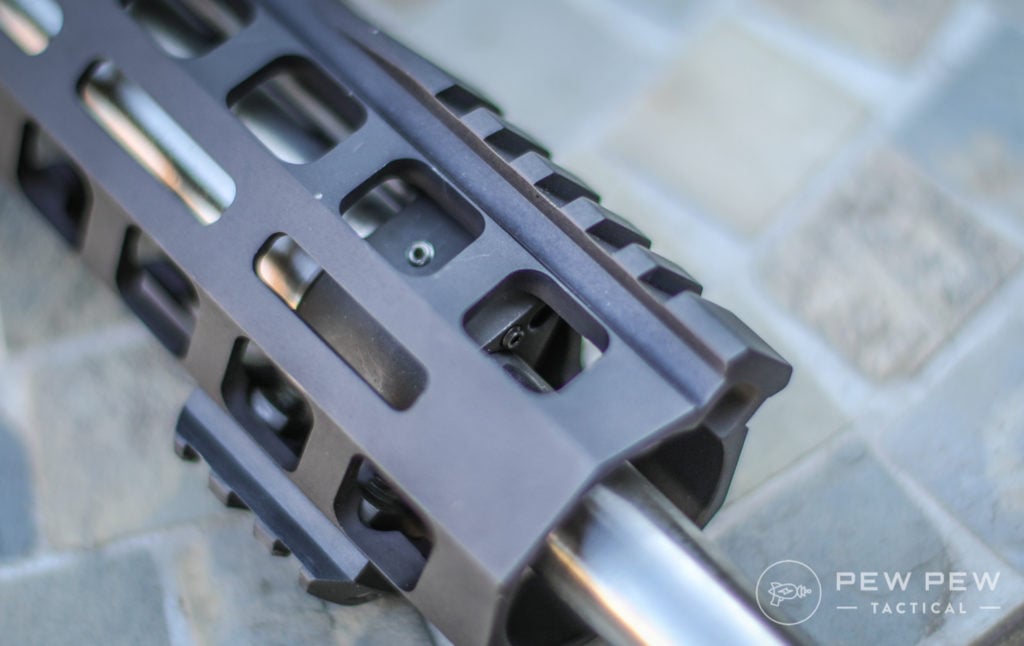
Can gas blocks or BCGs go bad? Yep, totally can happen!
In that scenario, you can always swap out the damaged component with a replacement from another AR, or you can pull identical parts out of your toolbox to help diagnose the problem.
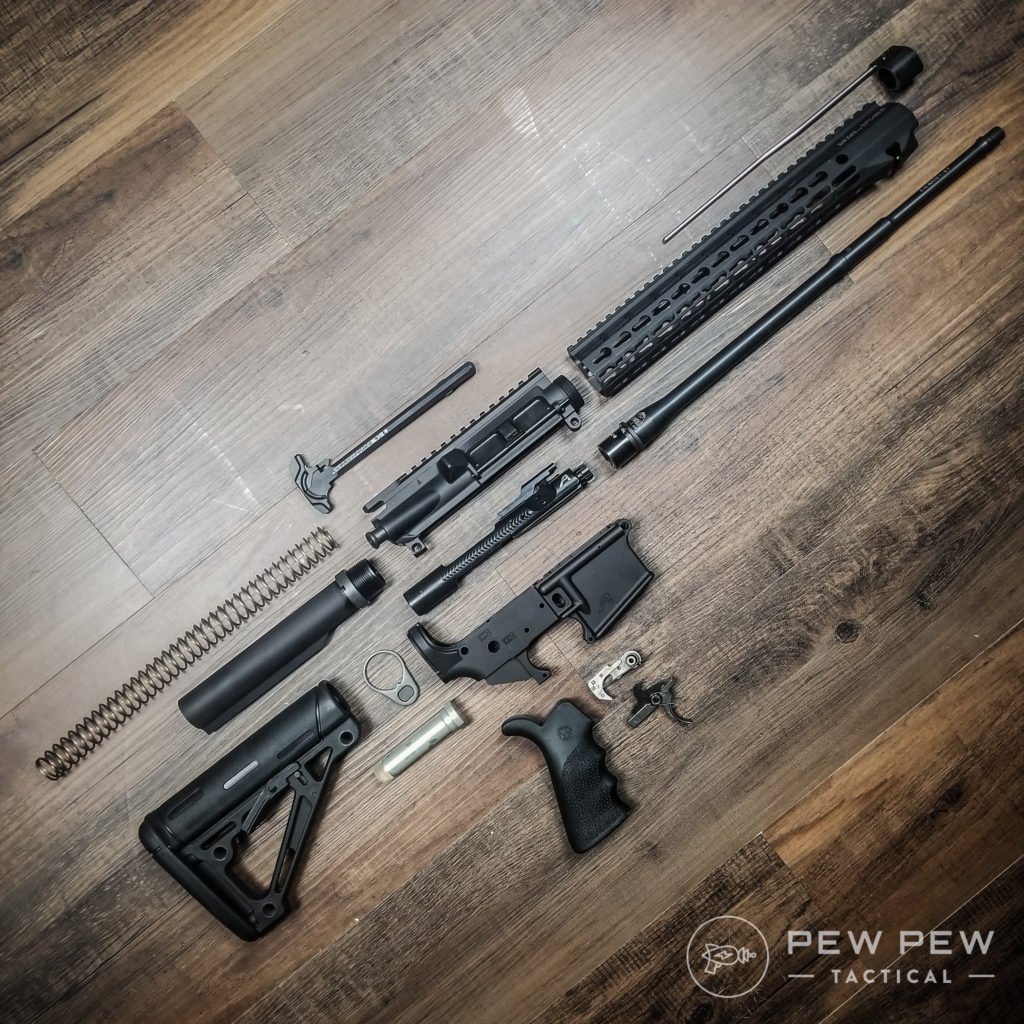
The ability to diagnose and repair your own gun is a valuable skill. But for a gas system problem, you might want to plan a trip to the local gunsmith.
A competent gunsmith has the experience and know-how to properly assess, diagnose, and repair the source of your gas system problem.

5. Over-Gassed Rifle
This is where it gets a little tricky. It can be difficult for the average gun owner to tell the difference between an under-gassed and an over-gassed AR.
An over-gassed gun pushes the limits of the platform by attempting to extract cartridge cases prematurely.

Because the brass isn't ready, your AR could suffer feeding and ejection issues, carbon buildup, excessive recoil, and other issues.
One way to diagnose an over-gassed AR is to assess your ammo for gouges at the base of the cases.
Another method is the one-round test. Try running the gun with a full magazine and then switch to a mag with a single round.
If the gun behaves the same with both magazines, it's probably over-gassing.
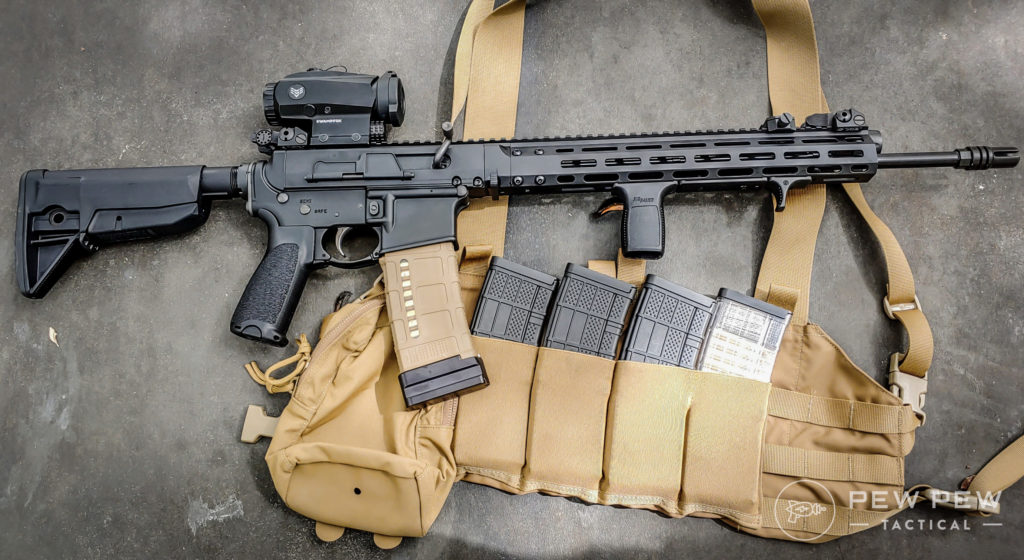
Learn how to tune your gas system in our tutorial here!
An under-gassed gun tends to slow down with a full magazine.
It may be okay at first, but then it fails to feed the next round. Or maybe it ejects slower and slower as you attempt to finish off the magazine.
If the gas tube and block are the correct size and properly aligned, that's good news. But if you can't open up that gas block, then it's probably time to upgrade to an adjustable model.
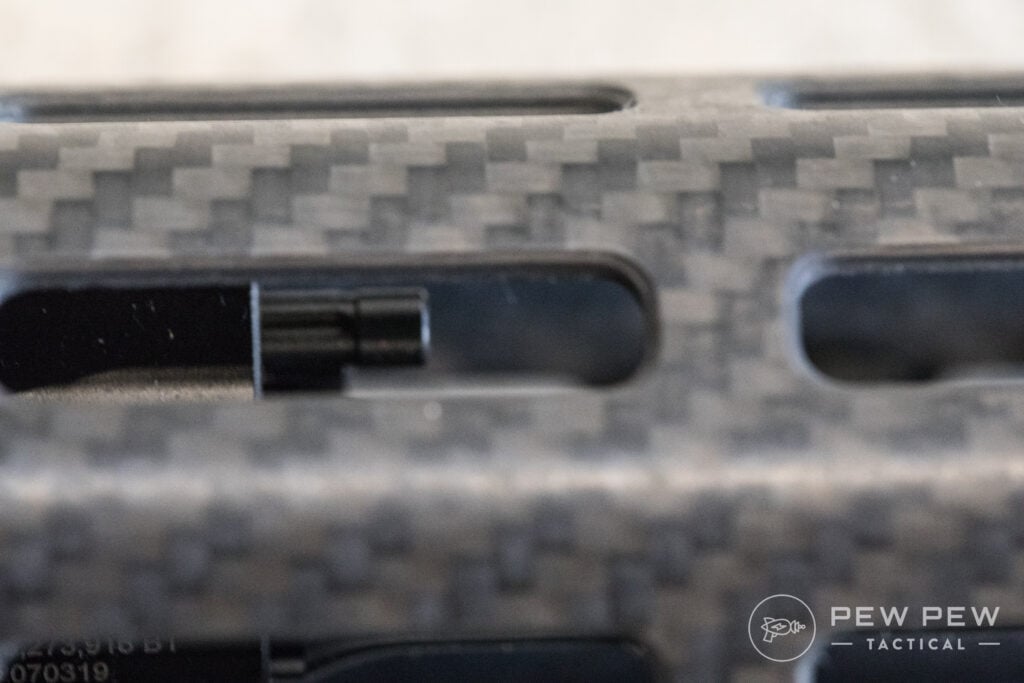
With an adjustable gas block, you can tweak as needed for different loads. It's amazing how one little upgrade can improve your AR's accuracy and reliability.
Quick tip, builders: Dimple your barrels when installing the gas block. This small step could save you some frustration down the road.
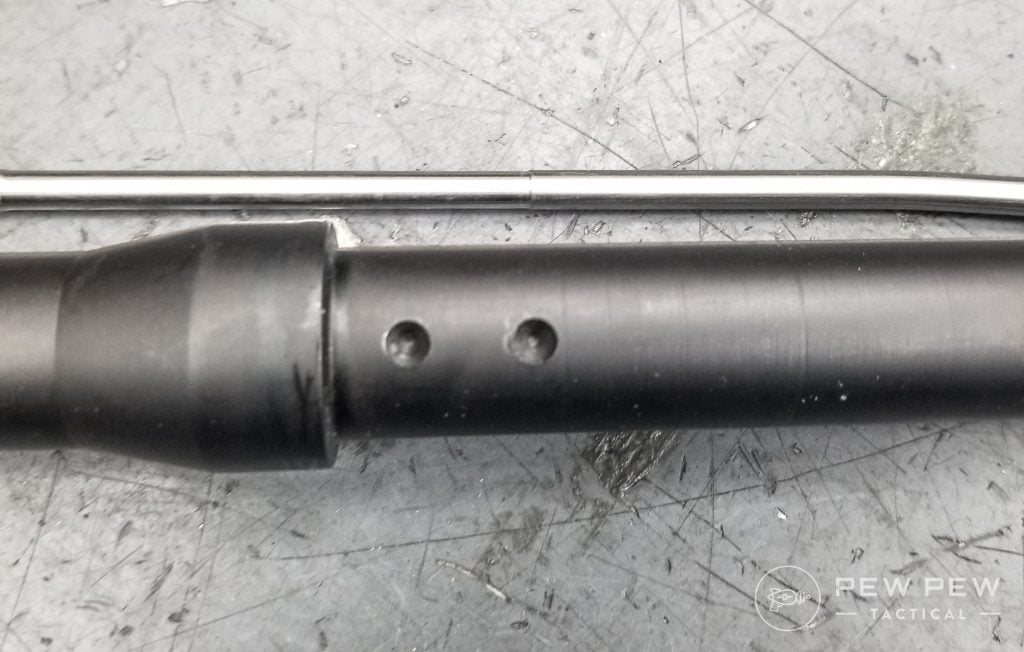
For more on how to install a gas block, check out our Gas Block Tutorial.
6. Bolt Override/Brass Over Bolt
This is a rare failure, but still worth mentioning.
In this scenario, a case or live round gets trapped at an angle above the bolt.
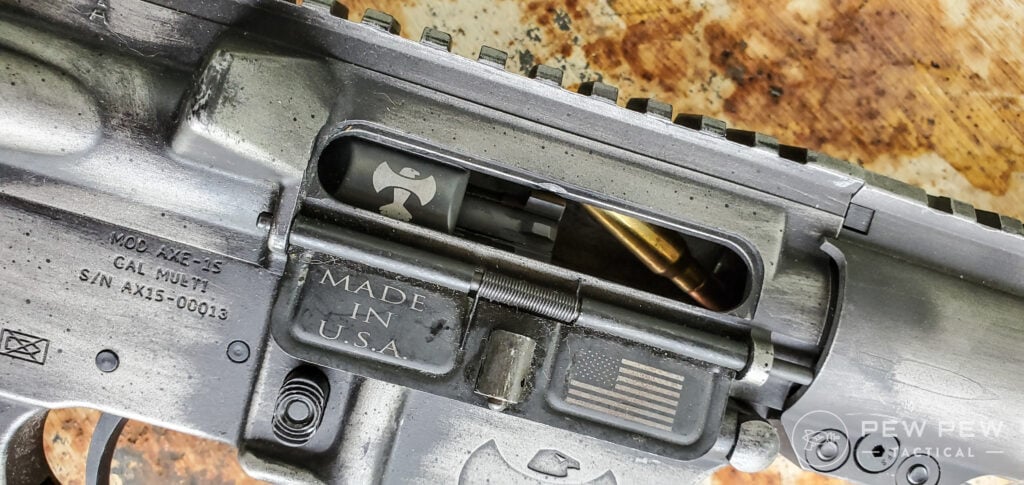
What's the first step to fixing this malfunction? Drop your magazine!
Use your support hand or a non-marring tool inside the magazine well to press the bolt backward.
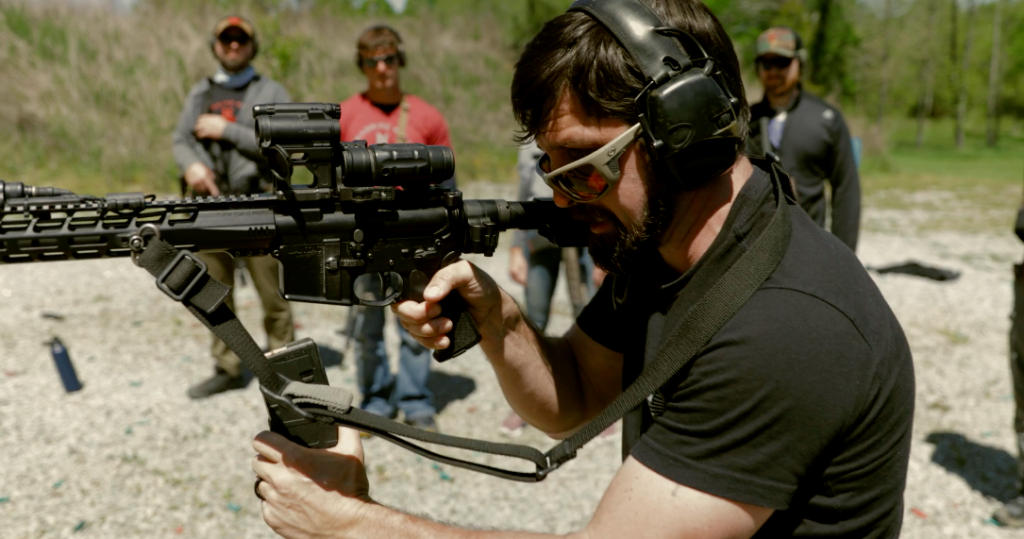
Then, pull the charging handle back with your strong hand.
You might need to finesse the charging handle a bit before the stuck round comes loose and drops down the empty magazine well.
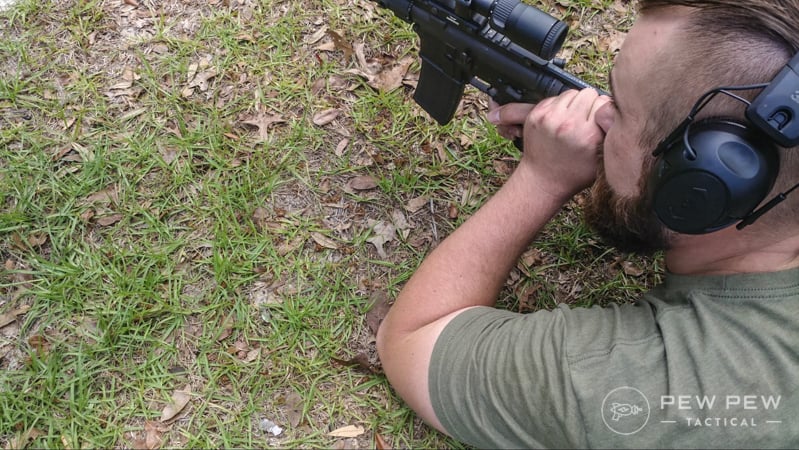
Once it's gone, use your eyes and fingers to confirm that the chamber and barrel are empty.
Never rely solely on your eyes. Always double-check by touch.
7. Double Feed
As the term implies, a double feed is when two rounds try to enter the chamber at the same time.
This can be tied to a Failure to Extract, where a live round gets stuck behind the previously fired round or its case.
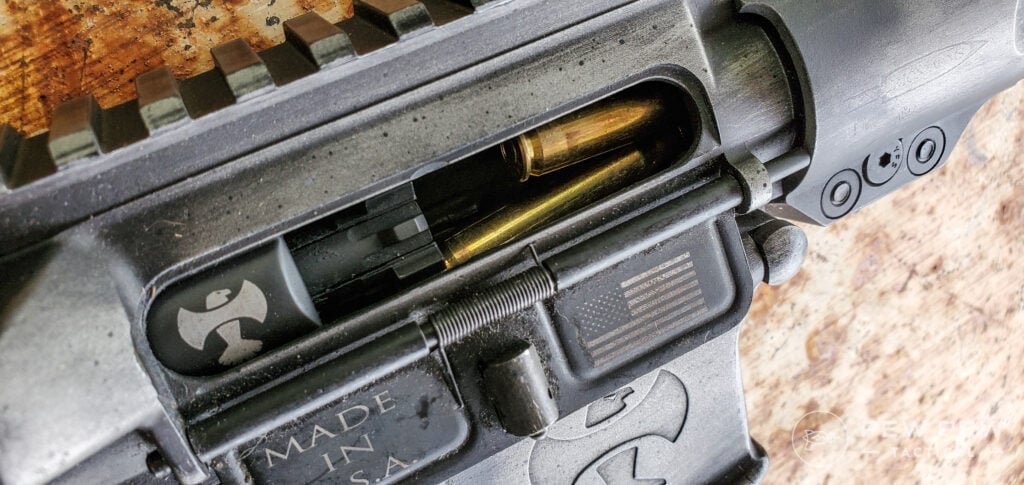
Sing it with me: To clear a double feed, drop that magazine!
By pulling the charging handle back, you can release tension and encourage the mag to drop. Depending on how that goes, you might find yourself physically pulling and working that magazine loose.

At this point, you should be able to knock the rounds out. If they don't shake loose, use a non-marring tool to carefully dislodge them.
I know the temptation is great, especially in the midst of double feed frustration, but try not to use your fingers to clear this malfunction.
Otherwise, you might damage a finger!
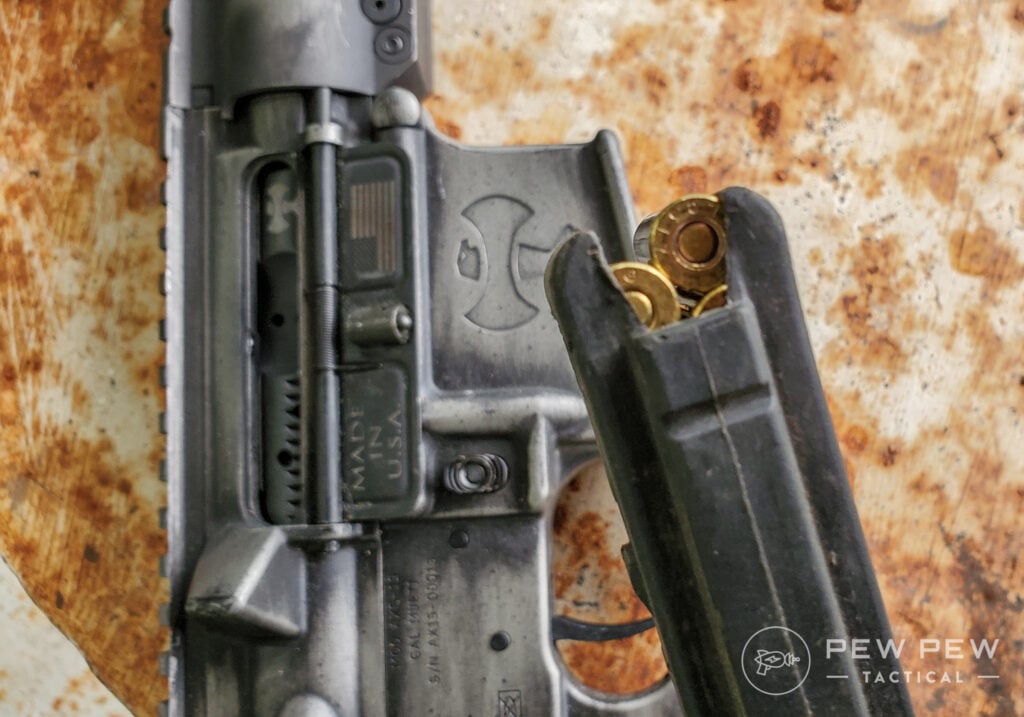
A major cause of double feed is an overly-full magazine.
As I mentioned before, you might have a 30-round mag, but that doesn't mean you need to load it with 30 (or more — yikes) cartridges.
Under-loading by a round or two can lessen the risk of tension-related failures.
8. Stovepipe
Every so often, you get a stovepipe in your AR. This means that spent brass got caught in the ejection port while it was being extracted.
The offending cartridge case should be clearly visible and sticking out. Good news? It's easy to fix!
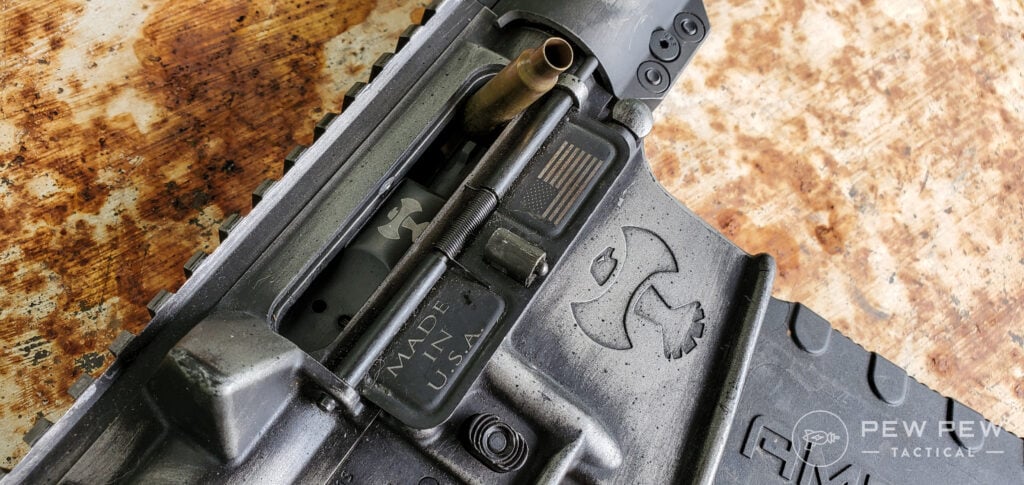
Remember our drill?
Tap, rack, reassess.
Tap to make sure the mag is properly seated and rack that charging handle! You might need to drop the magazine and pull the charging handle back to shake it free.
In a perfect world, it will fall out, leaving you free to reload your magazine and get back to shooting.

It's easy to fix a one-off incident. But what if it keeps happening?
You can start by swapping out the magazine and trying a different brand of ammunition. If you're still having trouble, check to see if the AR is under-gassing or over-gassing.
During this assessment, be on the lookout for fouling and verify if any brass shards are obstructing the bolt face.
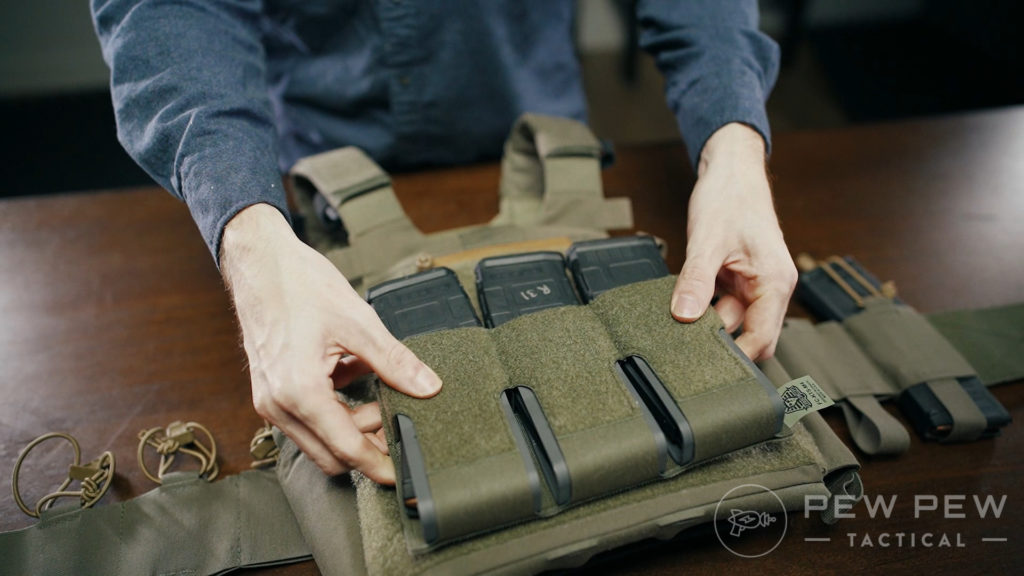
The problem could also be a faulty ejector or extractor spring. Heck, you might be able to solve the issue by trading out your BCG.
Still no luck? You might need to visit an expert.
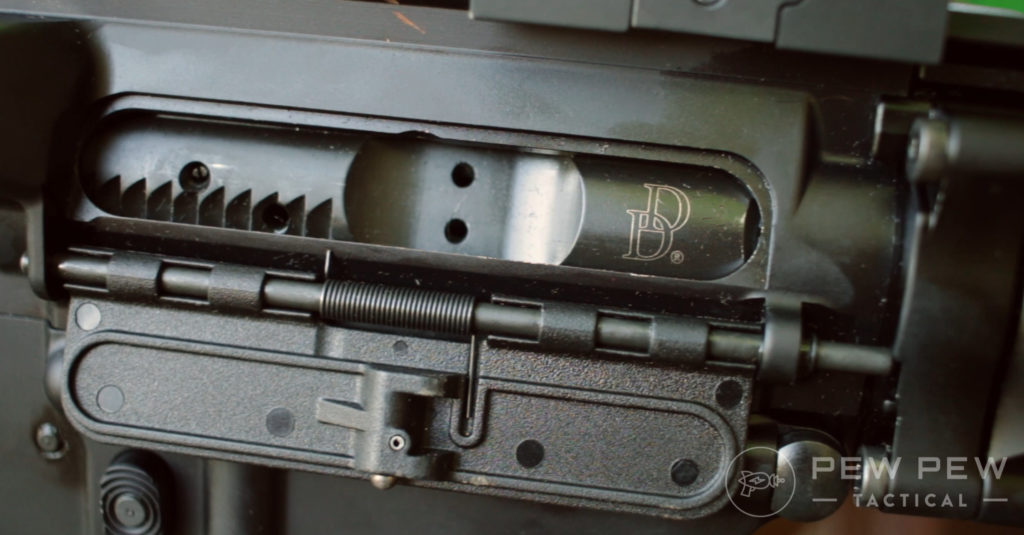
Before making that call, do yourself a favor and verify that your gun doesn't need to be cleaned or lubed.
As always, missing the little details can lead to inconvenient failures.
Conclusion
There are many failures that didn't make the list, but we tried to stick to the most common issues for this troubleshooting guide.
Remember: When dealing with any malfunction, always prioritize your safety and be thorough in your diagnosis.
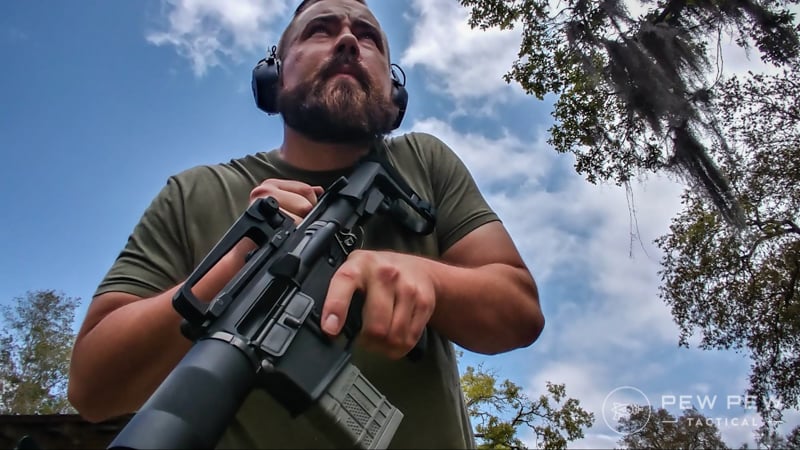
Because the magazine is the most common point of failure, you should always carry a few spares.
The same policy applies to ammunition-related errors. Sometimes a simple switch from handloads to factory cartridges can make all the difference.
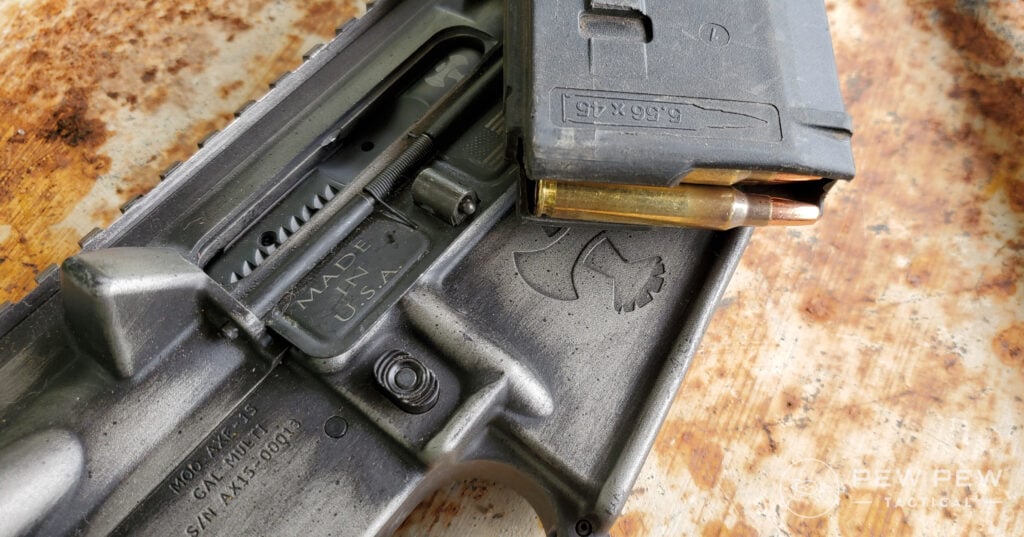
Try not to panic or rush through any of the steps because you're upset about the inconvenience.
One thing we've learned in this article is that a clean AR makes for a happy shooter. Read our guides on Essential Firearm Maintenance and How to Clean & Lubricate a Gun to dodge those pesky failures.
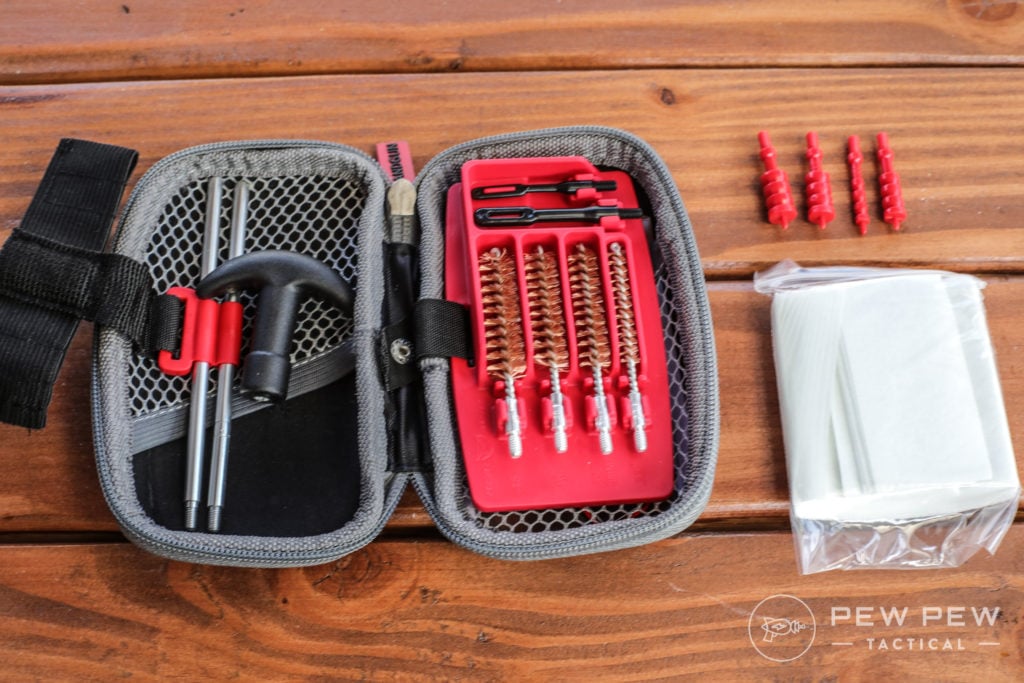
And there is no shame in asking an expert gunsmith for guidance. Education is an ongoing process, especially in the world of rifles.
And to learn more about AR-15 malfunctions, check out the Brownell's Daily Defense video below.
What malfunctions have you faced on the range? Let us know below. Ready to tackle pistol malfunctions next? Read up on what might face over at the 6 Common Handgun Malfunctions & How To Fix Them.
Source: https://www.pewpewtactical.com/ar15-failures/
0 Response to "Why Does Ar15 Have Feeding Issues With 762 X 39"
Postar um comentário